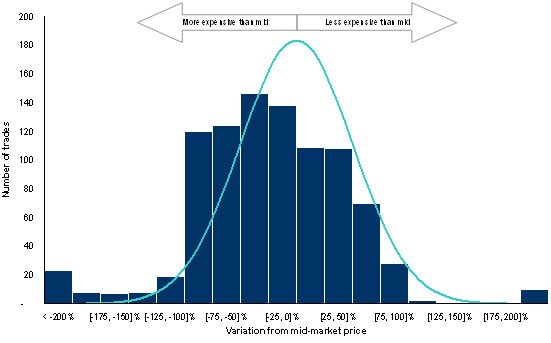Are Investors Paying too Much for Investment Services
Post on: 16 Март, 2015 No Comment

Investment expenses are complex and advisors are reluctant to discuss them. They don’t want you to know what you pay in total fees because you may not buy what they are selling. And, they know you may be particularly sensitive about the fees they earn in down markets when you are incurring big losses.
If you want to know more about the expenses you pay, you will have to ask the right questions and you better obtain your advisor’s responses in writing. Documentation is a lot better than verbal information that is subject to recall and is easy to deny later.
What do we already know about expenses and how they impact the achievement of your financial goals?
- We know every dollar of expense is one less dollar you have available for reinvestment and your future use.
- We know the financial services industry charges layers of fees when there are multiple service providers.
- We know the industry charges high expenses because it has a lot of overhead.
- We know everyone in the industry (advisors, managers, executives) wants to make a lot of money.
- We know all of the expenses are deducted from your investment accounts.
Given this background, following are a few tips that will help you ask the right questions and evaluate advisor responses.
1. One of your biggest expenses is your advisor’s compensation. How is he paid (fee or commission)? Who pays him (you, his firm, a third party)? How much is he paid? How frequently is he paid?
2. How many different companies deduct fees from your investment accounts: Advisory firm, money managers, custodian, others?
3. What services do you receive for the fees: Planning, investment advice, money management, custody?
4. Does the advisor charge a wrap fee that bundles the fees of multiple service providers into one fee? If yes, who gets what part of the wrap fee?
5. What fees do you pay if you receive planning and investment advice from the same advisor? Is it a fixed or hourly fee for planning? Is it an asset-based fee for investment advice and services? Does the asset-based fee cover planning and investment services?
6. Does your advisor charge a fee and commission for the same service? For example, he charges a planning fee “and” receives commission from the sale of investment or insurance products that are recommended by the plan.
7. Is the advisor paid once with a commission or ongoing with a quarterly fee or trailing commission. If the advisor is paid once, how does he provide ongoing services such as performance reporting?
8. Do any of the investment or insurance products have penalties for early withdrawal? Penalties can be as high as 10% and last for several years. Penalties cover upfront commissions that companies pay representatives to sell their products. The commissions are not deducted from your assets. Penalties cover companies’ commission expense if you leave early.
9. Find out if the fees or commissions are negotiable. The more assets you have, the lower your overall expense should be.
10. Ask multiple advisors to submit proposals before you select one. Their proposals should describe their services and the associated expense. You may be surprised by the number of expenses, the amount of the combined expense, and the range of expenses that are charged by different advisors.














